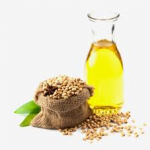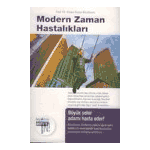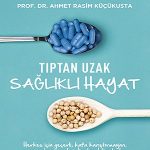SAĞLIĞIMIZI BOZAN BİTKİSEL TOHUM YAĞLARDIR

Dikkat: Yazının sonunda ek var!
***
Batı Dünyasında total enerji alımının yüzde 8-10’ unu linoleik asit, bitkisel yağlarda bulunan omega 6 yağ asitleri oluşturuyor.
Omega 6 linoleik asit merada otlayan hayvan ürünlerinde bulunan konjuge linoleik asit ile karıştırılmamalıdır.
Deri altındaki yağ dokusunda linoleik asit konsantrasyonlarının 1959’ dan 2008’ e 2.5 misli arttığı belirlenmiştir.
Yağlı dokudaki linoleik asit miktarı yağ alımının güvenilir bir işaretidir çünkü linoleiak asidin yağlı dokulardaki yarı ömrü 2 sene kadardır.
Yağ dokularında lineleik asitteki artışla diyabet, obezite ve astım prevalansındaki artış birbirine paraleldir.
Omega 6 yağ çoklu doymamış linoleik asit oksidatif stresi, LDL’ nin oksidasyonunu, kronik düşük dereceli enflamasyonu ve aterosklerozu teşvik eder ve koroner kalp hastalıklarına sebep olan en önemli beslenme faktörüdür.
Bunun bilhassa sıklıkla bitkisel yağ olarak bilinen endüstriyel tohum yağları şeklinde tüketilmesi zararlıdır.
Gelelim neticeye
Kalp damar hastalıklarına yol açıyor diye yasaklanan hayvansal doymuş yağlar yerine tavsiye edilen bitkisel tohum yağlar/margarinlerin kalp krizi ve felçlerin temel sebebi olduğu ispatlanmıştır.
Bitkisel yağların ve margarinlerin zerresi bile ağza alınmamalıdır.
Kaynak: https://openheart.bmj.com/content/openhrt/5/2/e000898.full.pdf
***
EK 1 (15.9.2022): “Soya proteini diyeti, C. difficile enfeksiyonuna duyarlılığı artırıyor.
Clostridioides difficile causes nosocomial antibiotic-associated diarrhea on a global scale. Susceptibility to C. difficile infection (CDI) is influenced by the composition and metabolism of gut microbiota, which in turn are affected by diet. However, the mechanism underlying the interplay between diet and gut microbiota that modulates susceptibility to CDI remains unclear. Here, we show that a soy protein diet increases the mortality of antibiotic-treated, C. difficile-infected mice while also enhancing the intestinal levels of amino acids (aas) and relative abundance of Lactobacillus genus. Indeed, Ligilactobacillus murinus-mediated fermentation of soy protein results in the generation of aas, thereby promoting C. difficile growth, and the process involves the anchored cell wall proteinase PrtP. Thus, mutual interaction between dietary protein and the gut microbiota is a critical factor affecting host susceptibility to CDI, suggesting that dietary protein sources can be an important determinant in controlling the disease.
Makale: Dietary-protein sources modulate host susceptibility to Clostridioides difficile infection through the gut microbiota
Kaynak: https://www.cell.com/cell-reports/fulltext/S2211-1247(22)01160-3
***
EK 2 (5.8.2023): Inflammatory bowel disease (IBD) is a multifactorial disease with increasing incidence in the U.S. suggesting that environmental factors, including diet, are involved. It has been suggested that excessive consumption of linoleic acid (LA, C18:2 omega-6), which must be obtained from the diet, may promote the development of IBD in humans. To demonstrate a causal link between LA and IBD, we show that a high fat diet (HFD) based on soybean oil (SO), which is comprised of ~55% LA, increases susceptibility to colitis in several models, including IBD-susceptible IL10 knockout mice. This effect was not observed with low-LA HFDs derived from genetically modified soybean oil or olive oil. The conventional SO HFD causes classical IBD symptoms including immune dysfunction, increased intestinal epithelial barrier permeability, and disruption of the balance of isoforms from the IBD susceptibility gene Hepatocyte Nuclear Factor 4α (HNF4α). The SO HFD causes gut dysbiosis, including increased abundance of an endogenous adherent invasive Escherichia coli (AIEC), which can use LA as a carbon source. Metabolomic analysis shows that in the mouse gut, even in the absence of bacteria, the presence of soybean oil increases levels of LA, oxylipins and prostaglandins. Many compounds in the endocannabinoid system, which are protective against IBD, are decreased by SO both in vivo and in vitro. These results indicate that a high LA diet increases susceptibility to colitis via microbial and host-initiated pathways involving alterations in the balance of bioactive metabolites of omega-6 and omega-3 polyunsaturated fatty acids, as well as HNF4α isoforms.
Kaynak: https://www.tandfonline.com/doi/full/10.1080/19490976.2023.2229945
Makale: Diet high in linoleic acid dysregulates the intestinal endocannabinoid system and increases susceptibility to colitis in Mice
***
EK 3 (5.4.2025): Tohum Yağı Yağları Agresif Meme Kanseri Büyümesini Tetikliyor
📈 Omega-6 linoleik asit (tohum yağlarında bol miktarda bulunur) mTORC1’i aktive ederek üçlü negatif meme kanserine yol açar
📊 Yüksek omega-6/omega-3 oranı kanser, kalp ve her türlü ölüm oranındaki artışla ilişkilendiriliyor.
✅ Tohum yağları ve işlenmiş gıdaları kesin
✅ Daha fazla omega-3 ve otla beslenmiş hayvan eti tüketin
Kaynak: https://www.science.org/doi/10.1126/science.adm9805
Makale: Direct sensing of dietary ω-6 linoleic acid through FABP5-mTORC1 signaling
***
EK 4 (4.6.2025): Herkesin mutfak dolabının bir köşesinde büyük ihtimalle ayçiçek ya da kanola yağı vardır. Yemek pişirmede veya salatalarda kullanılan bu tohum yağları dünya genelinde yoğun şekilde tüketiliyor.
Fakat internette bu yağlarla ilgili ateşli bir tartışma da yürüyor.
Tohum yağları son yıllarda sayısız sosyal medya paylaşımında hedef alındı, “zehirli” ve sağlığa zararlı oldukları iddia edildi.
Hatta tohum yağı karşıtları bu yağ grubuna “nefret edilen sekizli” adını verdi. Sekiz farklı tohum yağından bahsediyorlardı: kanola yağı, mısır, üzüm çekirdeği, soya, pirinç kepeği yağı, ayçiçek yağı ve aspur.
Bu yağları kalp hastalıklarına ve Tip 2 diyabete yol açmakla suçluyorlardı.
Peki, tohum yağları gerçekten düşmanımız mı ya da bu yağlara karşı olmak meşru mu? Tohum yağlarıyla kalp sağlı arasında ilişki var mı?
Tohum yağları karşıtlarının eleştirileri genelde, yüksek Omega 6 yağ asidi içeriğine odaklanıyor.
Omega 6 yağ asidi vücudumuzun üretemediği ama ihtiyacımız olan yağlardan olduğu için önemli.
Son yıllarda bazı bilim insanları, Omega 6’nın kalp hastalıkları ya da kansere yol açabilen kronik enflamasyona neden olduğunu iddia etmişti.
“Omega 6 enflamasyonu artırmıyor”
Ancak ABD’nin Masschusetts eyaletindeki Tufts Üniversitesi’nde bulunan Gıda İlaçtır Enstitüsü’nün Direktörü Profesör Dariush Mozaffarian, kontrol gruplu deneylerde Omega 6 yağ asitlerinin enflamasyonu artırmadığının tespit edildiğini söylüyor.
“Yeni araştırmalar, Omega 6 yağ asitlerinin vücutta güçlü bir enflamasyonla mücadele etkisi olan lipoksin gibi eşsiz ve doğal molekülleri artırdığını gösteriyor.”
Yakın tarihli bir araştırmada, ABD’deki 200 binin üzerindeki kişinin beslenmesi ve sağlık durumu 30 yıl boyunca izlendi.
Uzmanlar, araştırma süresi boyunca daha çok bitki yağı (kanola yağı da dahil) tüketenlerin kalp ve damar hastalıklarıyla kanserden ölme ihtimallerinin düştüğünü tespit etti.
Daha çok tereyağı tüketenlerde ise bu riskler artıyor.
Omega 6 yağ asidinin sağlığımız üzerindeki etkileri konusunda pek çok gözleme dayalı araştırma var. Bu tür araştırmalarda bilim insanları beslenme ve sağlık konusundaki verilere bakıp ikisi arasında ilişkiler kuruyor.
ABD’deki Johns Hopkins Bloomberg Kamu Sağlığı Okulu’ndan beslenme uzmanı Matti Marklund “Ama gözleme dayalı araştırmalar, insanların ne yediklerini kendilerinin söylemesine dayanıyor” diyor.
Marklund insanların beslenme alışkanlıklarını bazen hatırlamadığını bazen de dürüst yanıtlar vermediğini, bu yüzden de yöntemin sorunlu olduğunu vurguluyor.
Omega 6 alımını tespit etmenin bir diğer yöntemi de, kişinin beslenmesindeki farklı gıdaların ortalamasını almak. Ancak Marklund’a göre insanların yediklerini söyledikleri şeyleri belirli ölçülerde yansıtmanın zor olduğunu ekliyor.
Linoleik asit
Omega 6’nın sağlığımız üzerindeki etkilerine dair sayısız araştırma, linoleik asite odaklanıyor.
Linoleik asit, kanola yağında yüksek miktarlarda bulunan bir yağlı asit ve kandaki ‘kötü’ kolesterol olarak bilinen LDL kolestrol seviyesini düşürdüğü tespit edildi.
Marklund, 2019’daki çalışmasında bunun yerine 30 dolayında gözleme dayalı araştırmaya katılan ve bazıları 30 yıl kadar takip edilen deneklerin kanındaki yağ asidi oranlarına odaklandı. Kaçının kalp ve damar rahatsızlığı yaşayıp, bu nedenle öldüklerini inceledi.
Kanlarında en çok linoleik asit bulunanlarda kalp ve damar hastalıkları yaşama riskinin en düşük düzeye indiği tespit edildi.
Tohum yağlarına dair bir diğer iddia da Omega 3 yerine çok fazla Omega 6 tüketmenin zararlı olduğu yönünde.
ABD’deki Stanford Önleme Çalışmaları Merkezi’nin yöneticisi Christopher Gardner, Omega 6 ve kalp sağlığı konusunda biraz kafa karışıklığı olduğunu söylüyor.
Gardner bunun kısmen Omega 6’nın kan pıhtılaşmasında oynadığı rolden kaynaklandığını, insanların bunu yanlış bir şekilde sadece felç ve kalp krizleriyle ilişkilendirdiğini belirtiyor.
Omega 3’ün kanı incelttiğini söyleyen Gardner “Elinizde bir yara olursa, kanın pıhtılaşmasını istersiniz. Bir dengeye ihtiyaç var” diyor.
Bu arada, 30 farklı araştırmayı inceleyen bilim insanları 2019’da yaptıkları analizde, kanlarında daha yüksek düzeyde linoleik asit bulunanların kalp hastalıkları riskinin %7 azaldığı sonucuna varmıştı.
Marklund, “Linoleik asit kolesterolü iyileştirebilir ve kalp ve damar hastalıkları riskini azaltır. Ayrıca, glikoz metabolizmasını düzelterek tip 2 diyabet riskini düşürür” diyor.
Tohum yağları ve omega 3 ile omega 6 oranı
Batı dünyasında enerjinin %15’lik dolayındaki bir kısmı Omega 6 yağ asitlerinden alınıyor. Bir insanın Omega 3 ve Omega 6 oranı 50’ye 1’e kadar gidebiliyor.
Ancak bir çalışmaya göre kalp-damar hastalıkları riskini azaltmak için oranın dörde bir dolayında olması gerekiyor.
2022’de Dünya Sağlık Örgütü’nün (WHO) yaptığı bir veri incelemesi çalışmasına göre Omega 6 ve Omega 3 rasında daha yüksek bir oran, bilişsel sorunlar ve ülserli kolit gibi rahatsızlıkların riskini çoğaltıyor.
Ama diğer yandan, iki yağ asidi arasındaki daha büyük fark aynı zamanda depresyon riskinde %26’lık bir azalmayla da ilişkilendiriliyor.
Sonuç olarak WHO’nun çalışmasına katılan uzmanlar, tohum yağlarıyla yüksek oranda Omega 6 yağ asidi tüketmenin büyük ihtimalle ölüm ve hastalık riskini artırmadığı sonucuna vardı. Fakat bu alanda daha kaliteli araştırmalar yapılması gerektiğini de vurguladılar.
Bazı bilim insanları, Omega 3 ile kıyaslandığında çok fazla Omega 6 almamamız gerektiğini iddia ediyor.
Marklund ise ikisinin de sağlığa çeşitli faydalarla ilişkilendirildiğini söyleyerek, Omega 6 tüketimini azaltmak yerine Omega 3 tüketimini artırmayı öğütlüyor.
Tohum yağları nasıl işleniyor.
Diğer yağların tersine, bu yağlar bitkilerin tohumlarından elde ediliyor.
Tohum yağlarının ham petrolden elde edilen heksan adlı bir kimyasalla çıkartılması konusunda bazı endişeler var. Ancak bu işleme sürecinin herhangi bir soruna yol açtığına dair çok fazla kanıt yok.
Yağ çıkarıldıktan sonra koku gideriliyor ve beyazlatılıyor. Gardner “Bilim insanları size heksanla yağ çıkartmanın gıda işlemede normal olduğunu söyleyecektir. Kokudan arındırma ve beyazlatma potansiyel zararlı maddeleri temizliyor” diyor.
Soğuk presle yapılan tohum yağlarında heksan kullanılmıyor, ancak ürün maliyeti artıyor.
Tohum yağları tümör büyümesini hızlandırabilir mi?
Omega 6’nın potansiyel yararlarıyla ilgili çok sayıda çalışma var fakat araştırmacılar yakın geçmişte bu yağ asidinin, belirli bir meme kanseri türünde tümör büyümesini teşvik ettiğini buldu.
Bulguların, Omega 6 tüketiminin diğer hastalıklardaki rolü alanında etkisi olabilir.
Kanser hücreleri, büyümek ve çoğalmak için besleyici maddeler kullanıyor, ancak şimdiye kadar Omega 6 yağ asitlerinin oynadığı rol konusunda çok fazla çalışma yapılmamıştı.
Fakat bu yılın Mart ayında yayımlanan bir çalışmada, Omega 6 yağ asidinin üçlü negatif meme kanseri olan hastalarda kanser hücrelerinin büyümesine ve çoğalmasına yardımcı olduğu tespit edildi.
Bu, meme kanserinin en agresif türü ve tedavilere pek iyi yanıt vermiyor.
Hangi tohum yağı?
Mozaffarian, “Tohumlar, doğanın en besleyici armağanlarından biri; faydalı sağlıklı yağların deposu” diyor.
Kanola yağı ve soya yağı gibi bazı tohum yağları konusunda, diğerlerine kıyasla daha çok araştırma yapıldı ve daha sağlam kanıtlar var.
Mozaffarian’a göre “Bunların her biri dengeli bir sağlıklı yağlar kombinasyonu sağlıyor. Bunlara doymamış yağlar, Omega 6 çoklu doymamış yağlar ve Omega 3 çoklu doymamış yağlar da dahil”.
Kanola yağının benzer enflamasyonla mücadele özellikleri bulunduğunu ve kandaki kolesterol oranlarını, uzun süredir en sağlıklı yağ olarak görülen zeytinyağından daha iyi geliştirdiğini söylüyor.
27 çalışmanın verileriyle yapılan bir incelemeye göre kanola yağı, ayçiçek yağı ve doymuş yağa kıyasla LDL kolesterolü önemli ölçüde düşürüyor. Bir diğer incelemeye göre de özellikle tip 2 diyabet hastalarında vücuttaki yağ oranını önemli ölçüde azaltıyor.
Mozaffarian “Kanola yağı kandaki kolesterol oranında müthiş yararlar sağlıyor ve ayrıca bir miktar kilo verdiriyor. Kanola yağındaki sağlıklı yağlar, özellikle de Omega 6, kandaki şeker oranını, insülin direncini ve üretimini geliştiriyor” diyor.
Soya yağının da doymuş yağlara kıyasla, kolesterol seviyesini düzelttiği tespit edildi.
Bir çalışmada daha soya yağı tüketenlerin ölüm risklerinin %6 düştüğü bulundu.
***

















tereğaından zeytinyağından başka başka yağ tanımam yumurtadan şaşmam
Keten tohumu çörek otu yağları dahilmi hocam